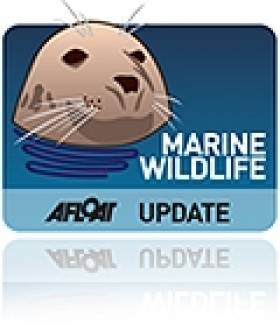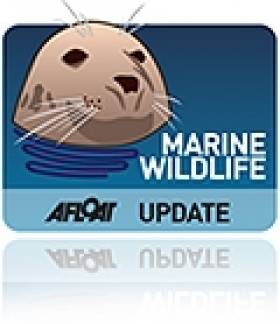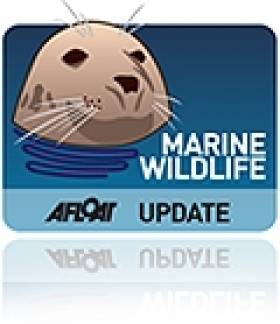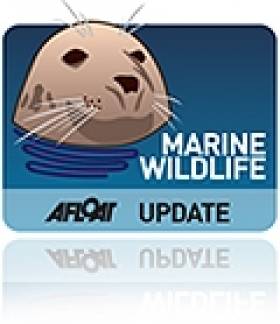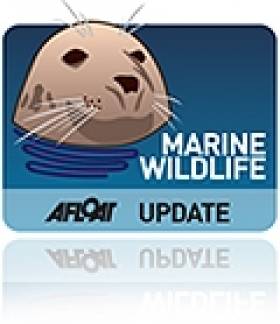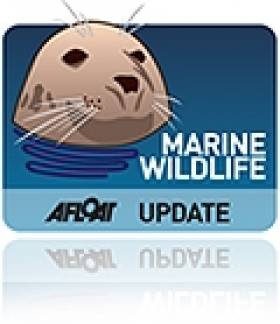Displaying items by tag: Marine Conservation Zones
Dismay Over Britain's 'Lack of Ambition' Over Marine Conservation Zones
#MarineWildlife - Fears among conservation groups that the UK would enact just a quarter of the proposed Marine Conservation Zones (MCZs) in British waters have been realised with the news that just 31 out of a potential 127 sites will be designated as protected by the end of 2013.
The original proposals, as reported last year on Afloat.ie, cover the waters around the English and Welsh coastlines - of which only 1% is currently protected - recommending a variety of zones that offer different levels of protection for marine wildlife and plantlife, allowing flexibility for fishing and other activities.
A government decision on the conservation areas was already postponed in November last year after pressure from coastlines users.
But as the Guardian reports, Westminster has now been accused of a "lack of ambition" by the Marine Conservation Society (MCS) over the announcement on Thursday 13 December, which the charity says flies in the face of the government's own advisers who have recommended a 'coherent network' of sites around Britain, including the immediate designation for 59 sites regarded as 'highly threatened'.
"We cannot delay protection," said Jean-Luc Solandt of MCS. "We wouldn't stand by and let wildflower meadows and ancient forests be dug up and cleared, and yet heavy fishing gear is dragged across all kinds of habitats, destroying large swaths of the seabed with very little control."
The World Wide Find for Nature (WWF) added to the chorus of disapproval, saying the decision by the Department of Environment, Food and Rural Affairs (Defra) "falls woefully short of what is needed to protect the marine environment".
Ali Champion of WWF UK said: “It’s disappointing and shows a complete lack of commitment to the protection of our seas in a coherent way."
Of the four zones recommended for the Irish Sea area, only one - at Fylde Offshore, off Lancashire - has been chosen by Defra for protection. But as the Blackpool Gazette reports, local campaigners say they will vow to continue the fight to 'save our seas'.
Water Users Speak Out Over UK Marine Conservation Proposals
#MARINE WILDLIFE - Sailors, fishermen and SCUBA divers in England's West Country could face "tough new restrictions" if plans for conservation zones in the Irish Sea and around the UK coast go ahead.
According to This Is Cornwall, groups representing water users argue that marine protection plans "would have severe knock-on effects on those who rely on the south west's coastline for employment and leisure".
Alana Murphy of the Royal Yachting Association said: "A lot of the small inshore areas proposed as conservation zones coincide with estuaries and bays that are used by sailors for mooring, or for laying buoys for racing. We are concerned we could lose important sailing areas."
Companies involved in offshore renewable energy have voiced their concerns on the impact of marine reserved on their development, while the National Federation of Fishermen's Organisations added that the scale of proposed fishing reserves was too great, and could potentially push commercial fishermen "to other areas which will then get overfished".
As previously reported on Afloat.ie, the UK's Wildlife Trusts have expressed dismay that plans to establish Marine Conservation Zones in the Irish Sea and elsewhere have been shelved till at least next year after pressure from fishermen, boaters and other groups.
Irish Sea Far From 'Dirty, Lifeless' Says New Website
#MARINE WILDLIFE - The UK's Wildlife Trusts have launched a new website in an effort to redress the idea that the Irish Sea is "a dirty, lifeless" place.
As BBC News reports, the trusts' Cheryl Nicholson put down the Irish Sea's poor image, saying "nothing could be further from the truth".
"Our sea is home to so many amazing species and habitats," she added, "but sadly, after centuries of neglect, it is not in a good state. We must act now to protect the Irish Sea from the depths through to the coastal shallows."
The new website is part of a campaign by wildlife trusts throughout northwest England, Wales, Northern Ireland and the Isle of Man to establish 15 Marine Conservation Zones recommended for the area.
The zones, if officially designated, would provide "a haven for wildlife to recover and thrive", said Nicholson.
As previously reported on Afloat.ie, plans to establish such zones in the Irish Sea have been shelved till 2013 at the earliest after pressure from fishermen, boaters and other groups.
BBC News has more on the story HERE.
Irish Sea Conservation Zones Shelved Till 2013
#MARINE WILDLIFE - Some 14 Marine Conservation Zones in the Irish Sea are among the network of planned marine wildlife sanctuaries around the UK that has been postponed.
The Liverpool Echo reports that the UK Department for the Environment, Food and Rural Affairs (Defra) has shelved plans to create the conservation areas by the end of 2012 after pressure from "groups that use the coastline frequently including fishermen, yachting enthusiasts and seaside villagers".
There will now be a six-month delay while and impact assessment on the network of well over 100 proposed sites is presented to the British government.
As previously reported on Afloat.ie, conservation groups have raised concerns that fewer than a quarter of the proposed sites around the UK will receive official protection.
Groups Concerned Over UK Govt Plans for Marine Conservation Zones
#MARINE WILDLIFE - Conservationists in the UK have voiced their concern that Westminster will enact fewer than a quarter of the proposed Marine Conservation Zones in British waters.
The Press Association reports that some 127 such zones - including parts of the Irish Sea - have been earmarked by regional conservation groups as areas requiring special environmental protection.
All 127 proposals were reviewed by an independent panel of scientists and government committees before they were to go on public consultation.
But it is now feared that a mere 23 of the total will get the go-ahead, due to a perceived lack of evidence to support the case for the rest.
"To only designate 23 marine conservation zones is equivalent to switching off the life support for our seas," commented Joan Edwards of the Wildlife Trusts.
The Press Association has more on the story HERE.
Proposals Unveiled for Marine Conservation Zones in England and Wales
Proposals to create more than 100 conservation zones to protect marine wildlife and plantlife in England and Wales have been unveiled.
BBC News reports that the proposals - covering waters around the English and Welsh coastlines, including parts of the Irish Sea - will be assessed by a panel of experts before a final decision by the British government, expected some time in 2012.
The Marine Conservation Zones (MCZs) will have differing levels of protection, depending on what regulators choose to prohibit and when under the provisions of the 2009 UK Marine Bill. This is to allow flexibility for activities such as fishing and recreation.
Should all proposals be approved, it would place more than a quarter of all English waters under some form of protection.
It is also hoped that this is the first step towards a network of protected waters across the whole of the UK.
Proposals for protection zones in Scotland are expected to come forward next year. Meanwhile, the Northern Ireland legisative assembly has yet to pass its own marine protection laws.
BBC News has more on the story HERE.
Proposed Irish Sea Conservation Zones
The area include the inshore waters of Merseyside, Lancashire and Cumbria and offshore waters of the Isle of Man, Wales, Northern Ireland and England. One of the zones is a 187 square km stretch of deep water between Northern Ireland and the Isle of Man.
In order to gain a greater understanding of the proposed zones, the report commissioned a Regional Stakeholder Group which drew from a diverse range of interests in the Irish Sea. Among the stakeholders included were the Royal Yachting Association, the fishing community and ports authorities. The review identified the size, shape and locations of the proposed 10 ten new Marine Conservation Zones. For the first time, the zones included inshore water of the Irish Sea project area as well as offshore.
"This is a real milestone for the project, with potential Marine Conservation Zones identified in both inshore and offshore waters", said Greg Whitfield, project manager at Irish Sea Conservation Zones.
"It is now really important that people take a look at the potential zones and give us their feedback on them. The better the information we have, the better the Marine Conservation Zones that are recommended by the regional stakeholder group will be."
Each of the marine conservation zones are designed to protect nationally important marine wildlife, habitats and geology. In addition they are designed to have the least impact possible on people's activities, but some restrictions will apply as the zones must meet guidelines for protecting species and habitats.
Members of the public are being invited to participate and will be considered as the second project continues to refine its proposals. The report is only a snapshot of the work so far. It does not contain concrete recommendations for the locations of Marine Conservation Zones (MCZ) in the Irish Sea, and the potential zones shown in the report are described as tentative and liable to change.
The Irish Sea Conservation Zone project will be releasing a third report before the Regional Stakeholder Group finalises its recommendations. The reports are delivered to the Science Advisory Panel. The independent body is comprised of expert scientists whose main role is to evaluate the potential of MCZs against ecological criteria.
The third progress report will be made available in February 2011. Its final recommendations will then be presented to the UK government in June. Following that a formal public consultation on the proposed MCZs are to take place in late 2011 and early 2012.
For information on the Second Progress Report including feedback forms can be downloaded from HERE or by calling 00 44 (0)1925 813 200



























